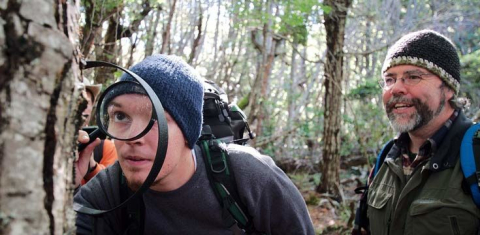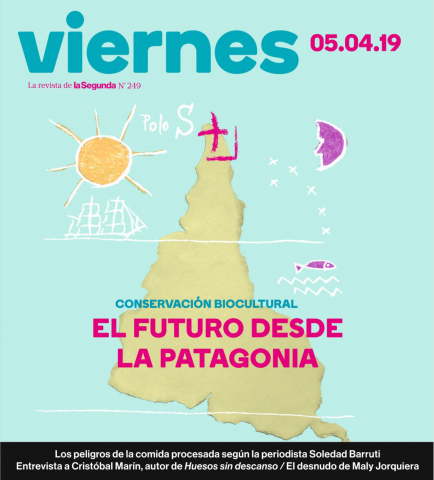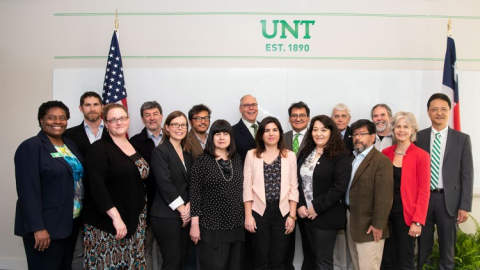October 24, 2019
UNT celebrated with its Chilean partners the international launch of Chile's Sub-Antarctic Cape Horn Center that will tackle biodiversity responses to climate change in that region.
On Oct. 19, UNT hosted a delegation from Chile as part of the U.S. Department of State's International Visitor Leadership Program. Photo by Angilee Wilkerson.
"It was a great opportunity to meet with our friends and colleagues from Chile who share our commitment to the vital work taking place in the Chilean Sub-Antarctic. We had fruitful conversations about how to advance our mutual interests, how to further connect our educational programs and how to help create a sustainable future for this region." UNT President Neal Smatresk says. "We believe that our collaboration will make a difference in preserving this fragile ecosystem thanks to our relationship with the Chilean government, the University of Magallanes and the Pontifical Catholic University."
As part of its long-standing leadership of the Sub-Antarctic Biocultural Conservation Program, on Oct. 19, UNT hosted a delegation from Chile as part of the U.S. Department of State's International Visitor Leadership Program. As the Department of State's premier professional exchange program, current and emerging foreign leaders participate in short-term visits to the U.S. related to their field of interest.
UNT President Neil Smatresk and Provost of the Universidad de Magallanes, Jose Maripani. Photo by Angilee Wilkerson.
The delegation toured the U.S. in advance of the United Nations Santiago Climate Change Conference to be held in December in Chile. Before visiting UNT, the delegation participated in the international launch of Chile's Sub-Antarctic Cape Horn Center at a special celebration held by the Chilean Embassy in Washington, D.C. UNT is a partner in the new center in Puerto Williams, Chile, at the southern tip of South America. The center aims to become a national and international model for the long-term study of social sciences and ecology in the context of global climate change.
While in Washington, the delegation also met with the Inter-American Development Bank and visited the headquarters of the Pew Charitable Trusts where UNT, the Embassy of Chile to the U.S. and the Omora Foundation participated in a panel discussion about climate change.
In January, Chile announced the creation of its newest marine protected area, the Diego Ramírez Drake Passage Marine Park, which followed years of work by the Sub-Antarctic Biocultural Conservation Program, an international network of organizations - including UNT, the University of Magallanes and the Omora Ethnobotanical Park- that incorporates traditional ecological knowledge, arts and culture and environmental ethics in its conservation and policymaking efforts. The Diego Ramírez Drake Passage Marine Park located at the southernmost end of the Americas is the largest such park in South America, extending over 55,000 square miles and a stretch of ocean with rich biodiversity, and is considered one of the last pristine areas in the world.
Photos of plant and Darwin Cordillera glacier; background photo by Paola Vezzani.
Members of the group included UNT faculty Ricardo Rozzi and Jim Kennedy who organized the International Visitor Leadership Program visit to UNT. While at UNT, the delegation and several distinguished guests from Chile met with campus leaders and toured research facilities. The group traveled to California to visit agencies that manage marine sanctuaries before returning to Chile.
The Sub-Antarctic Biocultural Conservation Program received a major financial boost in 2018 when the Chilean government awarded the Cape Horn Biosphere Reserve $20 million for a new Cape Horn Sub-Antarctic Center.
"This means an opportunity to strengthen the social mission and research excellence in a privileged place for the monitoring of climate change and testing of a sustainable development," says Ricardo Rozzi, the director of the Sub-Antarctic Biocultural Conservation Program and a UNT professor of philosophy and religion.
The Cape Horn Sub-Antarctic Center is set to open a new world-class 2,750 square-meter facility focused on promoting sustainable development for the Chilean Antarctic Province. In addition to featuring space dedicated to scientific research that aims to attract specialists from around the world, the center also will include an interpretive visitor center where tourists can learn about the biodiversity of Cape Horn.
Since 2006, students from UNT and various other U.S. and South American universities have participated in Tracing Darwin's Path, a study abroad program in the UNESCO Cape Horn Biosphere Reserve that blends environmental philosophy and biology with the study of art and culture. The Sub-Antarctic Biocultural Conservation Program at UNT, the University of Magallanes in Chile and the Institute of Ecology and Biodiversity in Chile coordinate this interdisciplinary program.
In June 2018, UNT joined the University of Magallanes, the Pontifical Catholic University of Chile and the Chilean Institute of Ecology and Biodiversity in consolidating a partnership strategy for the management of the Cape Horn center.
"The new center will provide UNT students along with students around the world with an extraordinary opportunity to experience the transdisciplinary approach to biocultural conservation in one of the last pristine regions of the world," Rozzi says. https://research.unt.edu/unt-hosts-delegation-chile


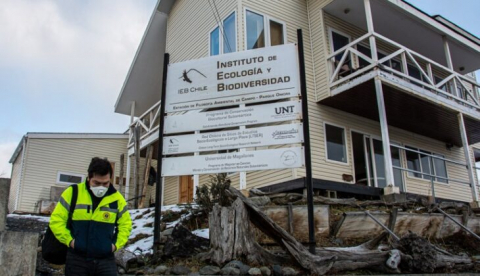
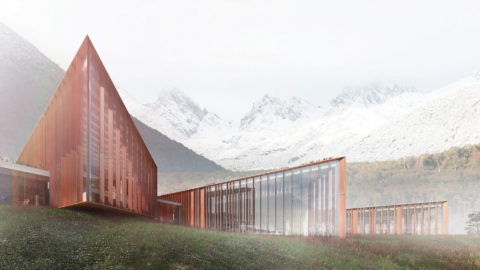

.png)
